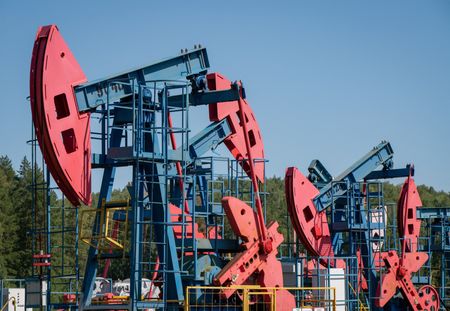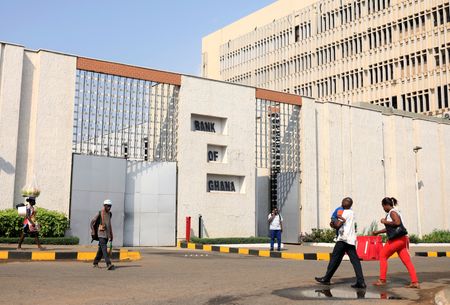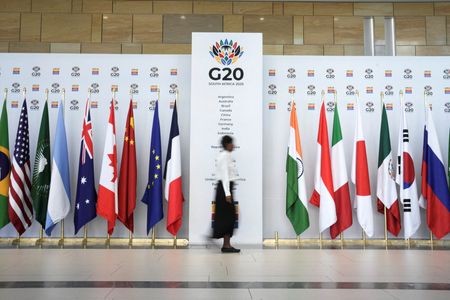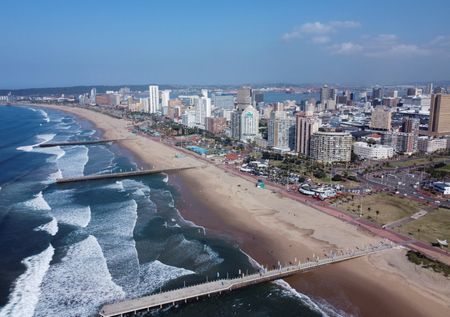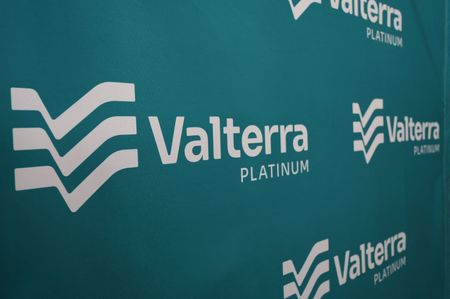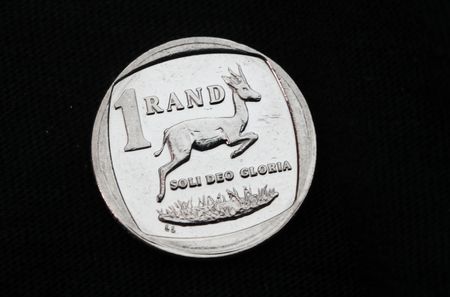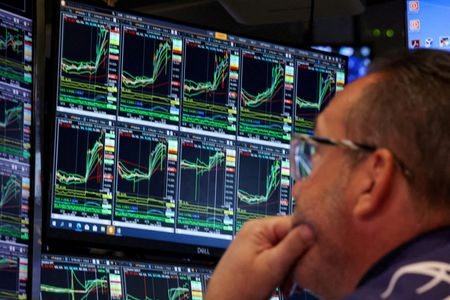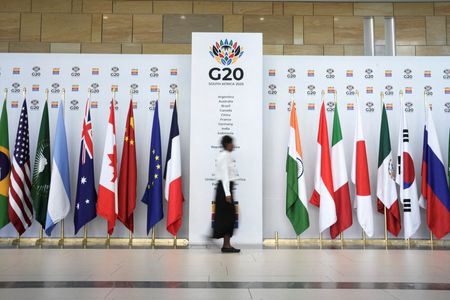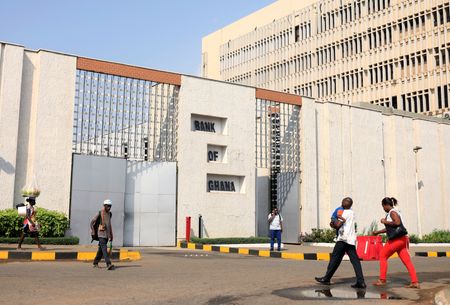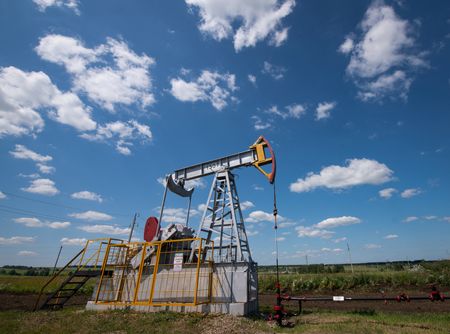By Robert Harvey
LONDON (Reuters) -Oil prices edged higher on Friday, heading for a small weekly loss, as investors weighed new European Union sanctions against Russia.
Brent crude futures climbed 50 cents, or 0.72%, to $70.02 a barrel as of 0912 GMT, U.S. West Texas Intermediate crude futures gained 61 cents, or 0.9%, to $68.15 a barrel.
At those levels, the contracts were headed for a marginal weekly loss of 0.5% and 0.4% respectively.
Investors mulled the potential impact on global oil balances of the EU’s agreement on an 18th sanctions package against Russia over its war in Ukraine, which includes measures aimed at dealing further blows to Russia’s oil and energy industries.
Its latest sanctions package will lower the G7’s price cap for buying Russian crude oil to $47.6 per barrel, diplomats told Reuters.
“Neither the price cap for Russian oil nor adding shadow fleet tankers on a sanction list managed to disrupt Russian oil exports so far, so the market remains sceptical of the impact of the latest sanctions,” UBS analyst Giovanni Staunovo said.
Investors are awaiting news from the U.S. on possible further sanctions, after President Donald Trump earlier this week threatened sanctions on buyers of Russian exports unless Moscow agrees a peace deal in 50 days.
“Ultimately, it is now a matter of waiting for possible major changes in U.S. sanctions and tariff policy,” Commerzbank analysts said in a note.
Four days of drone attacks on oilfields in Iraqi Kurdistan that shut down half the region’s output have supported prices, pushing both contracts up by $1 on Thursday.
The attacks “are bound to take their toll as the region’s output has been slashed from 280,000 bpd to around 130,000 barrels per day,” said PVM analyst Tamas Varga.
Officials pointed to Iran-backed militias as the likely source of attacks this week on the region’s oilfields, although no group has claimed responsibility.
Despite the attack, Iraq’s federal government said on Thursday that Iraqi Kurdistan will resume oil exports through a pipeline to Turkey after a two-year halt.
(Reporting by Robert Harvey in London, Siyi Liu in Singapore; Editing by Kate Mayberry, Sharon Singleton and Emelia Sithole-Matarise)

